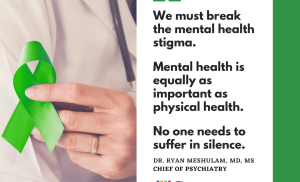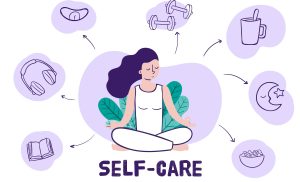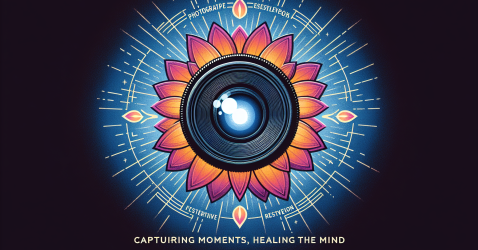How Does The Digital Age Impact Our Mental Health, And What Steps Can We Take To Find Balance In Our Tech-driven Lives?
In today’s fast-paced digital age, it’s no surprise that our mental health can be significantly impacted by our ever-growing dependence on technology. From constant notifications to the pressure of maintaining a digital persona, it’s easy to feel overwhelmed and disconnected from ourselves and those around us. However, finding balance in our tech-driven lives is not impossible. By consciously setting boundaries, practicing self-care, and engaging in activities that promote mindfulness, we can regain control over our mental well-being and create a healthier relationship with technology.
Impact of the Digital Age on Mental Health
In today’s digital age, there has been a noticeable increase in the prevalence of mental health issues. The constant use of technology, particularly excessive screen time, has had a negative impact on our mental well-being.
Increasing prevalence of mental health issues
With the increasing accessibility and use of technology, mental health issues have become more widespread. Conditions such as anxiety, depression, and attention-deficit/hyperactivity disorder (ADHD) have seen a significant rise. This can be attributed to various factors, including the constant exposure to social media, the pressure of comparing oneself to others, and the addictive nature of technology.
Negative effects of excessive screen time
Excessive screen time has been linked to several negative effects on mental health. Spending long hours on digital devices can lead to feelings of isolation and loneliness, as individuals become more engrossed in their virtual lives rather than engaging in meaningful face-to-face interactions. Additionally, excessive screen time has been associated with disrupted sleep patterns, reduced physical activity, and increased sedentary behavior, which can further contribute to mental health issues.
Connection Between Social Media and Mental Health
One area where the impact of the digital age on mental health is especially evident is the connection between social media and mental health.
Comparison and self-esteem issues
Social media platforms, such as Instagram and Facebook, often serve as highlight reels of people’s lives. This constant exposure to curated and edited versions of others’ lives can lead to unhealthy comparisons and a decline in self-esteem. People may feel inferior or inadequate when presented with a seemingly endless stream of picture-perfect lives, leading to feelings of depression, anxiety, and low self-worth.
Social isolation and loneliness
While social media connects us in the virtual world, it can also contribute to social isolation and loneliness. Instead of fostering genuine connections, people often find themselves engaging in superficial interactions online, which can leave them feeling disconnected and isolated. This lack of authentic social connection can exacerbate feelings of loneliness and increase the risk of mental health issues.

Addiction to Technology
technology addiction, or problematic internet use, is a growing concern in the digital age. It refers to the excessive and compulsive use of technology, leading to negative consequences on a person’s mental health.
Definition and symptoms of technology addiction
Technology addiction is characterized by a person’s inability to control their use of technology, despite the negative impact it has on their life. Symptoms include withdrawal symptoms when not using technology, preoccupation with technology-related activities, neglect of personal responsibilities, and unsuccessful attempts to cut back or control usage.
Effects of technology addiction on mental health
Technology addiction can have profound effects on mental health. Excessive use of technology can lead to heightened feelings of anxiety, depression, and irritability. It can also impair cognitive functions such as attention, memory, and decision-making. In extreme cases, technology addiction can lead to social withdrawal, isolation, and even co-occurring mental health disorders.
Hazardous Effects of Cyberbullying
Cyberbullying is a prevalent issue in the digital age, with severe consequences for the mental health of those who experience it.
Definition and forms of cyberbullying
Cyberbullying refers to the use of technology to harass, intimidate, or humiliate others. It can take various forms, including spreading rumors, sending threatening messages, sharing private information without consent, and posting hurtful comments or images online. The anonymity and impersonal nature of online platforms often embolden individuals to engage in this harmful behavior.
Impact of cyberbullying on mental health
The impact of cyberbullying on mental health can be devastating. Victims often experience increased levels of anxiety, depression, and low self-esteem. They may also develop feelings of isolation and social withdrawal, as the online environment becomes a source of fear and intimidation. In severe cases, cyberbullying has been linked to self-harm and suicidal ideation, making it crucial to address this issue promptly and effectively.

Distraction and Reduced Productivity
The digital age has brought about numerous distractions that can significantly impact our mental well-being and productivity.
Multitasking and attention span
Multitasking has become a common occurrence in the digital age, as we try to juggle multiple tasks simultaneously. However, research has shown that multitasking actually reduces productivity and impairs our ability to concentrate. Constantly switching between tasks and digital distractions can lead to a fragmented attention span, making it challenging to focus and complete tasks efficiently.
Effects of constant distractions on mental well-being
Constant distractions from technology can have detrimental effects on our mental well-being. When we are constantly bombarded with notifications, emails, and social media updates, it can cause feelings of overwhelm, stress, and anxiety. The constant need to multitask and be readily available for digital interactions can prevent us from being fully present and engaged in the moment, impacting our overall happiness and sense of fulfillment.
Sleep Deprivation and its Consequences
One significant consequence of the digital age on mental health is sleep deprivation, primarily due to the exposure to blue light emitted by digital screens.
Blue light exposure and sleep disorders
Exposure to blue light emitted by digital screens, such as smartphones and computers, can disrupt our sleep patterns. Blue light suppresses the production of melatonin, a hormone that regulates sleep, making it difficult to fall asleep and experience restful sleep. This can lead to sleep disorders such as insomnia and poor sleep quality, which can negatively impact our mental health.
Cognitive and emotional impacts of sleep deprivation
Sleep deprivation not only affects our physical health but also has significant cognitive and emotional impacts. Lack of sleep can impair our ability to concentrate, think clearly, and make decisions. It can also increase feelings of irritability, mood swings, and emotional instability. Prolonged sleep deprivation is linked to an increased risk of mental health disorders such as depression and anxiety.

Digital Detox Techniques
To find balance in our tech-driven lives and protect our mental health, it is essential to incorporate digital detox techniques into our daily routines.
Importance of taking breaks from technology
Taking breaks from technology is crucial for our mental well-being. It allows us to disconnect from the constant digital stimulation and recharge our minds. By intentionally stepping away from screens and engaging in activities that do not involve technology, we give ourselves the opportunity to relax, reflect, and reconnect with the present moment.
Implementing screen-free time and activities
Implementing screen-free time and activities can help us establish a healthier relationship with technology. Setting aside designated periods during the day where screens are avoided, such as during meals or before bedtime, allows us to prioritize other aspects of our lives and create space for meaningful offline interactions. Engaging in hobbies, outdoor activities, or spending time with loved ones can be beneficial for our mental health and overall well-being.
Establishing Healthy Tech Habits
Establishing healthy tech habits is essential to maintain a well-balanced relationship with technology and safeguard our mental health.
Setting boundaries and limits
Setting boundaries and limits around technology use is crucial for establishing healthy habits. This can involve setting designated time frames for technology usage, such as turning off screens an hour before bedtime or creating screen-free zones in certain areas of our homes. By defining clear limits, we can regain control over our technology usage and prevent it from overpowering other aspects of our lives.
Creating a tech-free bedtime routine
Creating a tech-free bedtime routine is particularly important for ensuring restful sleep and promoting mental well-being. Avoiding screens for at least an hour before sleep allows our minds to unwind and prepare for rest. Engaging in activities such as reading a book, practicing relaxation techniques, or journaling can help create a peaceful and tech-free environment conducive to sleep.

Promoting Digital Well-being
To promote digital well-being, it is crucial to use technology mindfully and seek support and resources for mental health.
Using technology mindfully
Using technology mindfully involves being intentional and aware of how we engage with it. It means using technology as a tool rather than being controlled by it. Practicing digital mindfulness techniques such as setting specific purposes for technology use, limiting unnecessary scrolling, and taking regular breaks can help us develop healthier and more conscious tech habits.
Seeking support and resources for mental health
In the digital age, there are numerous resources available online to support mental health. From mental health apps and online support groups to teletherapy services, seeking support through digital platforms can be beneficial. It is essential to leverage these resources and remember that seeking help is a sign of strength, not weakness.
Encouraging Face-to-Face Interaction
While the digital age offers many opportunities for virtual connection, it is essential to balance online socializing with meaningful face-to-face interaction.
Balancing online and offline socializing
To maintain a healthy social life, it is crucial to balance online and offline socializing. While online interactions can provide convenience and accessibility, they should not replace the depth and significance of in-person connections. Prioritizing face-to-face interactions with friends, family, and loved ones allows for deeper emotional connections, increased social support, and a sense of belonging.
Engaging in meaningful in-person connections
Engaging in meaningful in-person connections is vital for our mental well-being. Face-to-face interactions provide opportunities for genuine human connection, emotional expression, and social bonding. Whether it’s having a heartfelt conversation, sharing experiences, or participating in activities together, fostering meaningful in-person connections can enhance our overall happiness and mental health.
In conclusion, the digital age has undoubtedly influenced our mental health, both positively and negatively. While technology offers numerous benefits and conveniences, it is essential to be mindful of its potential negative impact. By recognizing the increasing prevalence of mental health issues, understanding the connection between social media and mental well-being, addressing addiction to technology and cyberbullying, and being aware of the detrimental effects of constant distractions and sleep deprivation, we can take steps to protect and prioritize our mental health. By incorporating digital detox techniques, establishing healthy tech habits, promoting digital well-being, and encouraging face-to-face interaction, we can find balance in our tech-driven lives and cultivate a healthier relationship with technology for the betterment of our mental well-being.


















